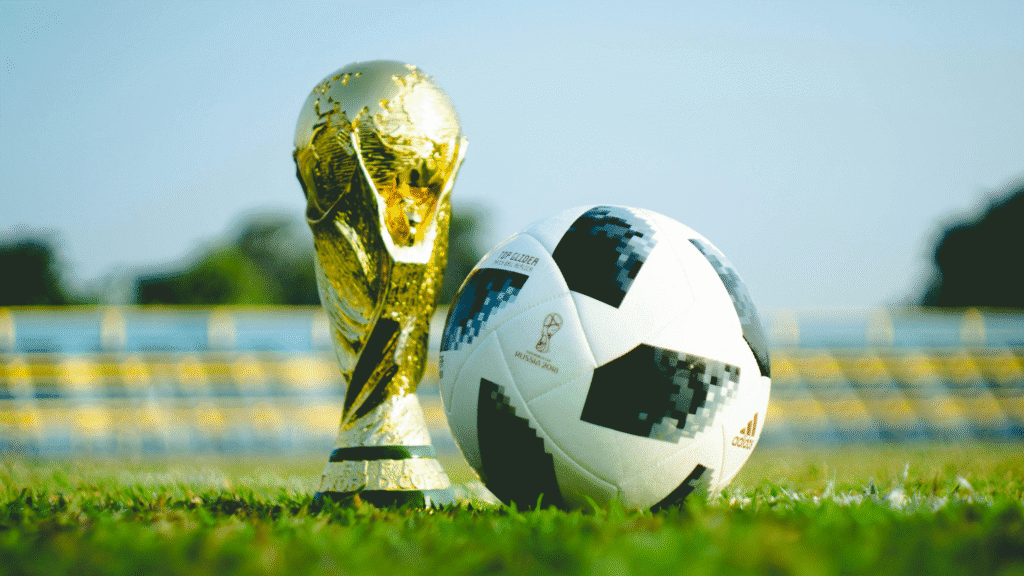Ten years ago, the world of soccer was shaken by one of the biggest scandals in sports history. On May 27, 2015, Swiss police stormed a luxury hotel in Zurich, arresting top soccer officials in a dramatic early-morning raid. These arrests were part of a massive U.S. investigation into corruption within FIFA, the organization that runs global soccer. The scandal, known as “FIFAgate,” exposed years of bribery, fraud, and greed at the highest levels of the sport. Many hoped this would be the moment soccer finally cleaned up its act. But a decade later, critics say little has truly changed.
That night in 2015, FBI agents and prosecutors in New York waited nervously as their plan unfolded. They had spent months building a case, gathering evidence of “rampant, systemic, deep-rooted” corruption in soccer. When the arrests happened, the world took notice. Over the next few years, dozens of soccer officials and business executives admitted guilt or were convicted in court. Millions of dollars stolen from the game were recovered. FIFA promised big reforms, claiming it would become more transparent and ethical. But now, many believe those promises were just for show.
“FIFA didn’t fix the structural flaws that ultimately led the U.S. authorities to intervene in the first place,” says FairSquare, a nonprofit organization that studies corruption in sports. Despite the arrests and public outrage, the system that allowed corruption to thrive is still in place. Some of the reforms FIFA introduced have even been rolled back. “It’s all window dressing,” says Joseph Weiler, a former member of FIFA’s governance committee.

FIFA, of course, disagrees. The organization insists it has changed for the better. “Today, we work in a clear way, a transparent way, and an ethical way,” says FIFA president Gianni Infantino. He took over in 2016 after the scandal forced out his predecessor, Sepp Blatter. FIFA points to stricter financial rules and better oversight of how money is spent. Many inside the organization believe the worst days of bribery are over.
But experts say the real problem runs much deeper. The bribes were just one symptom of a broken system. FIFA, its regional branches, and national soccer federations are all connected by a web of power and favors. Leaders at the top often act without consequences, making deals behind closed doors. “A king supremo that makes deals with a few people, and those deals are then imposed across the pyramid of football,” is how Miguel Maduro, former head of FIFA’s governance committee, describes it.
Infantino, instead of changing this system, has made it stronger. He has removed checks on his power, making decisions without much input from others. Critics call him a “modern autocrat” who controls soccer with a small group of allies. This kind of power, experts say, is exactly what allowed corruption to spread in the first place.
The U.S. investigation exposed the rot but couldn’t fix it. Prosecutors saw their case as a chance to force real change in global soccer. Their indictment even compared FIFA to organized crime. But U.S. law forced them to treat FIFA as a “victim” of corrupt individuals, not as a corrupt organization itself. This meant FIFA was never held fully accountable. Now, years later, many of the prosecutors who worked on the case can only watch as their efforts fade. One calls it “a bit of a lost opportunity.”
When the scandal first broke, the world saw FIFA as the face of corruption. News headlines screamed about “FIFA Officials Arrested on Corruption Charges.” Swiss police raided FIFA’s headquarters. The head of the IRS’s criminal division even joked, “This really is the World Cup of fraud, and today, we’re issuing FIFA a red card.” But while the scandal damaged FIFA’s reputation, it didn’t force the deep changes many hoped for.
The problem is that FIFA’s power structure rewards loyalty, not fairness. Presidents of national soccer federations depend on FIFA for funding, so they rarely challenge its leaders. Votes for top positions are often decided in backroom deals. This system makes it easy for corruption to return, even after a scandal as big as FIFAgate.
Some insiders say the U.S. could have pushed harder for reform. Instead of just targeting individuals, they could have pressured FIFA to change its rules. But legal limits and political concerns held them back. Now, with most of the original prosecutors gone, there’s little pressure on FIFA to do better.
Fans, players, and even some officials still hope for change. They want a sport run with honesty, where decisions are made for the good of the game, not for personal gain. But as long as power stays concentrated in the hands of a few, the rot will remain. Ten years after the scandal that was supposed to clean up soccer, the beautiful game is still waiting for real reform.
The story of FIFAgate is a warning. It shows how hard it is to change a system built on power and secrecy. The arrests and court cases were dramatic, but they didn’t fix the problem. Until the way FIFA operates is completely transformed, corruption will always find a way back in. For now, the chance to truly reform soccer remains missed.


